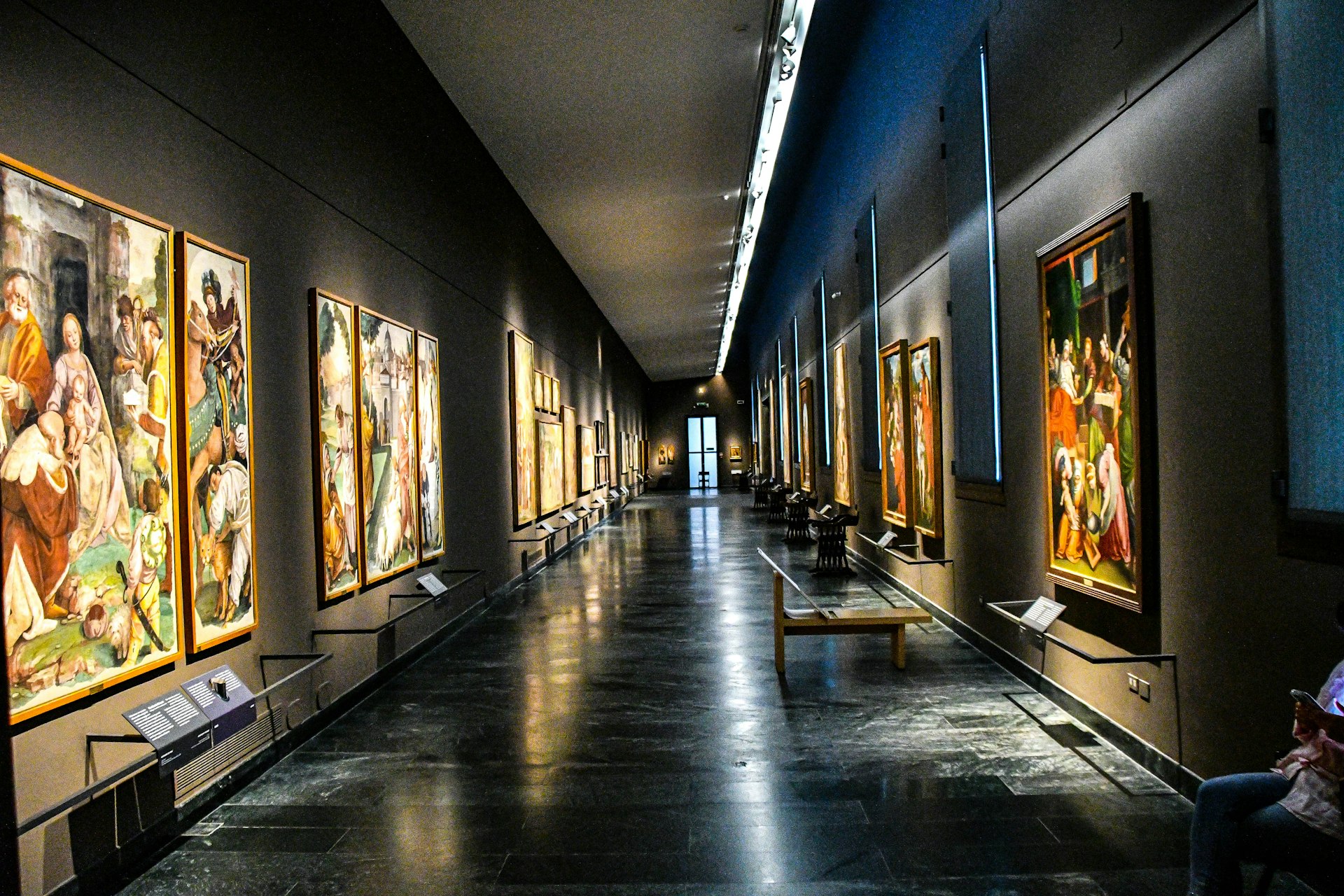The Evolution and Legacy of Democracy in Ancient Greece

Photo by Jimmy Liu on Unsplash
Introduction: The Birth of a New Political System
The concept of democracy-government by the people-finds its earliest and most influential roots in ancient Greece, particularly in the city-state of Athens. This article explores the development, practice, and enduring impact of Athenian democracy, drawing on historical milestones, the roles of key reformers, and the challenges and adaptations that shaped the system. By understanding how democracy functioned in ancient Greece, we gain valuable insights into modern governance and citizen participation.

Photo by Albert Canite on Unsplash
The Foundations: Early Reforms and Social Context
Ancient Greek society was divided into independent city-states, or
poleis
, each with its own government. Athens, the most renowned of these, pioneered a system that allowed citizens to participate directly in political decisions. However, democracy did not arise overnight. The road to democratic rule was paved by a series of reforms addressing social unrest, economic inequality, and demands for greater political inclusion.
The first major step occurred under Solon in 594 BCE. Solon, appointed as archon (chief magistrate), responded to widespread civil strife by enacting reforms that abolished debt slavery, restructured the class system, and broadened political participation. He established new laws and created the Council of Four Hundred, which gave citizens a voice in governance. These reforms laid the groundwork for the more radical changes that followed [1] .
Cleisthenes and the Birth of Democracy
While Solon’s reforms initiated political change, it was Cleisthenes , often called the “Father of Athenian Democracy,” who implemented the decisive reforms around 508 BCE. Cleisthenes reorganized the Athenian population into ten tribes based on residence rather than kinship, breaking the power of noble families. He expanded the Council to 500 members, chosen by lot, ensuring broader representation. This marked the beginning of a system where all adult free male citizens could participate in the Assembly, propose laws, and vote on key decisions [2] .
Practical guidance: For those interested in further research, you can search for “Cleisthenes reforms” on major academic databases or consult university libraries with classical studies departments. Many open-access historical resources, such as those provided by established institutions, offer in-depth materials on this topic.
The Structure of Athenian Democracy
Athenian democracy was a direct democracy : citizens voted on legislation and executive decisions themselves, rather than through elected representatives. The principal institutions included:
- The Assembly (Ekklesia): Open to all male citizens over 18, the Assembly met regularly to debate and decide policy, war, and foreign relations.
- The Council of 500 (Boule): This body prepared the agenda for the Assembly and handled administrative tasks. Members were selected by lot from each of Athens’s ten tribes.
- Court System (Dikasteria): Large citizen juries decided legal cases by majority vote, reflecting the belief in popular justice.
Participation was restricted to free adult males-about 30% of the population-excluding women, slaves, and foreigners [2] . While this limitation seems stark by modern standards, it represented a significant expansion of political rights for the era.
Reforms and Innovations: Ostracism and Accountability
One of the innovations of Athenian democracy was ostracism : citizens could vote to exile individuals deemed a threat to the state for ten years, without loss of property or rights. This practice aimed to protect the democratic system from would-be tyrants without bloodshed [1] .
Other reforms included payments for public office, enabling poorer citizens to participate, and the use of randomized selection (sortition) to fill many government positions, minimizing the influence of wealth or birth.
Actionable guidance: To study the procedural details of ostracism and sortition, consider consulting reputable historical encyclopedias or searching for digitized ancient texts, such as Aristotle’s “Athenian Constitution,” available through major academic institutions.
Democracy in Practice: Achievements and Limitations
The Athenian system fostered remarkable civic engagement. Citizens actively debated policy, served in public office, and participated in large juries. This environment nurtured philosophical inquiry, the arts, and scientific development. However, critics-ancient and modern-note the exclusions inherent in the system and the dangers of majority rule, including the execution of Socrates in 399 BCE for allegedly corrupting the youth [2] .
For educators and students, exploring these debates can deepen understanding of the strengths and weaknesses of direct democracy. Many universities and online course platforms offer modules on Athenian democracy and its legacy.
Interruptions and Restoration
Athenian democracy was not uninterrupted. During periods of crisis, such as the Peloponnesian War, oligarchic coups replaced democratic rule. Notably, in 411 and 404 BCE, brief oligarchic governments were established. Democracy was restored each time, often with modifications to prevent abuses and promote stability [2] . The final blow came in 322 BCE when Macedonian conquerors suppressed the system, although democratic institutions were later revived in modified forms.
If you want to trace these transitions, you might consult academic timelines or search for “Athenian democracy timeline” in resources like the World History Encyclopedia or university-hosted digital archives.
The Broader Greek World: Democracy Beyond Athens
While Athens is the best-documented case, other Greek city-states also experimented with democratic systems. By the late 4th century BCE, as many as half of the over 1,000 Greek cities may have had some form of democracy. Each adapted the principles to its own context, with varying degrees of citizen participation and institutional design [2] .
Those interested in comparative studies can search for “democracy in ancient Greek city-states” in academic journals or reference works for case studies outside Athens.
Legacy and Lessons for Today
The influence of ancient Greek democracy extends far beyond antiquity. The Athenian model inspired later political thinkers and contributed to the development of representative systems in Europe and America. Its experiments with direct participation, checks on power, and civic education remain central to discussions about governance today.
For modern civic leaders or educators seeking to foster engagement, studying Athenian democracy offers practical lessons: the importance of inclusive institutions, the need for accountability, and the ongoing challenge of balancing majority rule with minority rights.
How to Access Further Resources
To explore the history of democracy in ancient Greece further, you can:
- Visit university libraries or classical studies departments for books and primary sources.
- Search for “Athenian democracy” on established academic websites or digital archives.
- Look for open-access courses or lectures on platforms hosted by reputable universities.
- Consult digitized ancient texts, such as Aristotle’s “Athenian Constitution” or works by Thucydides and Herodotus, often available through established educational or government portals.
- For timelines and key events, reference resources like the World History Encyclopedia or established timelines from recognized institutions.
When seeking information online, always verify that you are using official university, government, or reputable nonprofit sources. If in doubt, contact a local librarian or academic advisor for recommendations on trustworthy materials.
References
- [1] Timetoast (n.d.). Athenian Democracy Timeline.
- [2] Wikipedia (2024). Athenian democracy.
- [3] Ancient Greece.org (n.d.). Ancient Greece Timeline.
- [4] World History Encyclopedia (n.d.). Timeline: Athenian Democracy.
- [5] American School of Classical Studies at Athens (n.d.). History and Timeline of the Athenian Agora.



